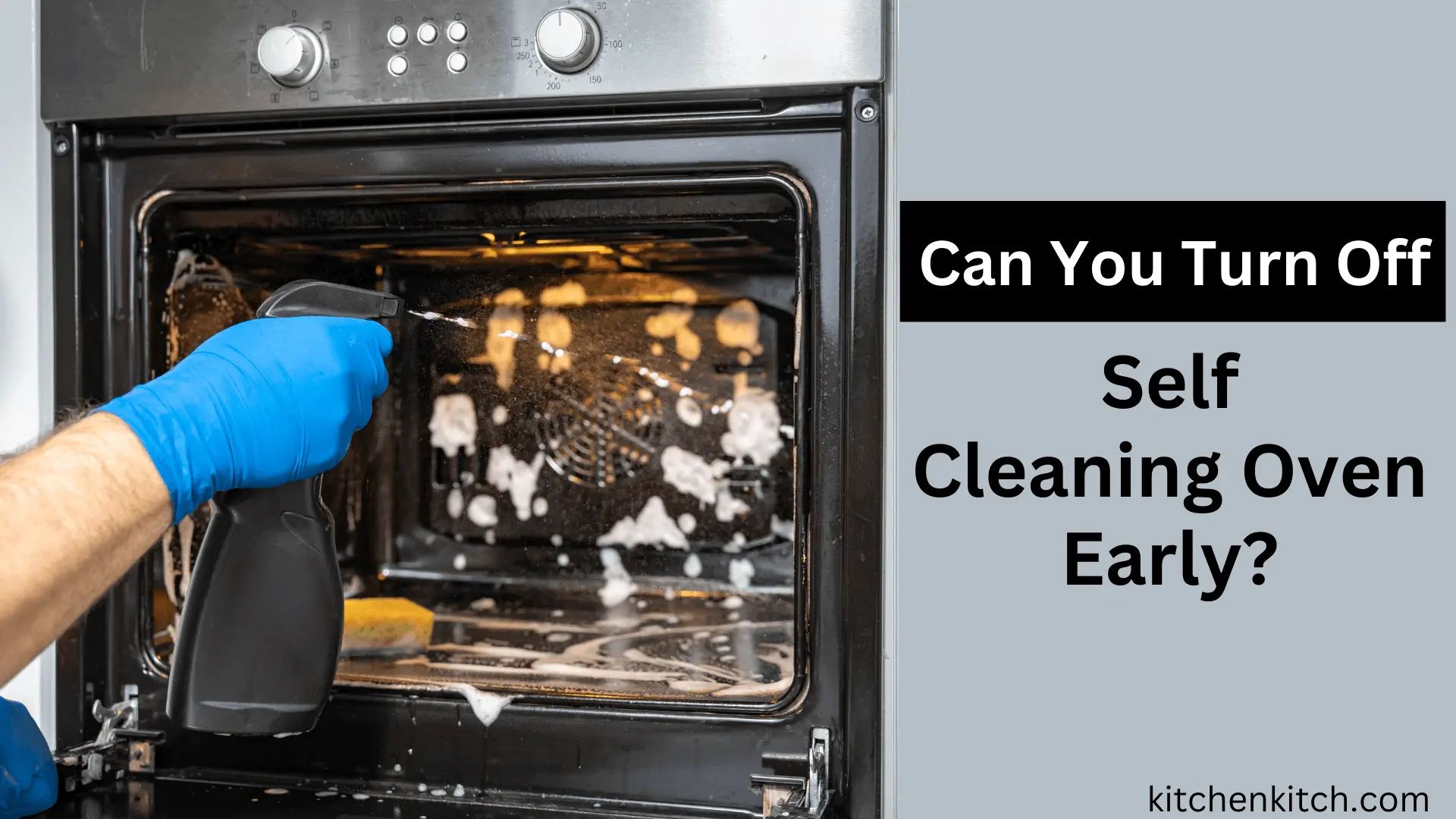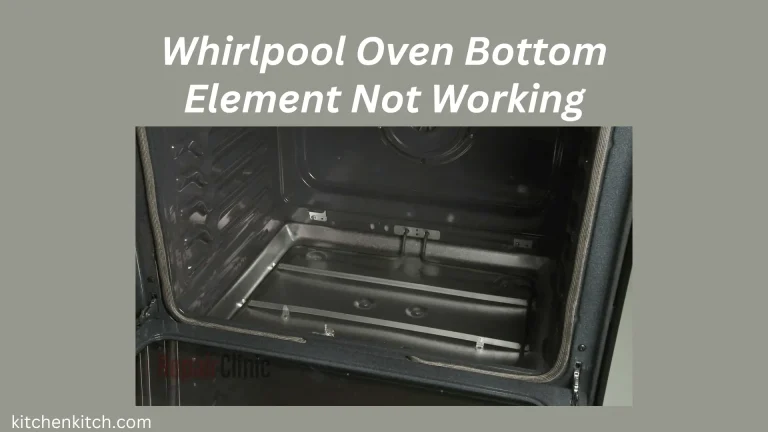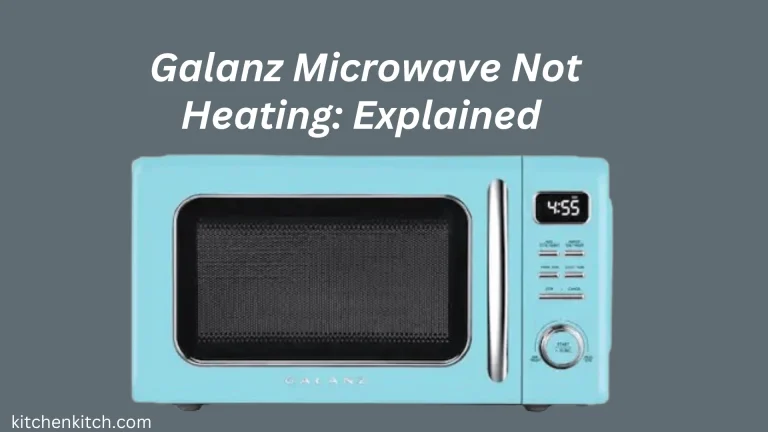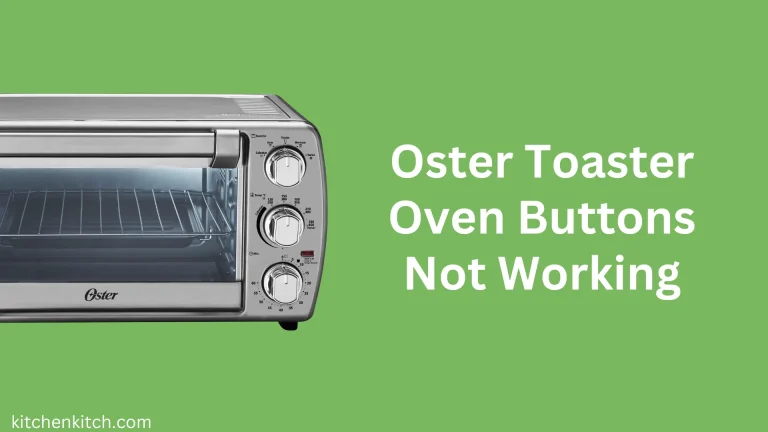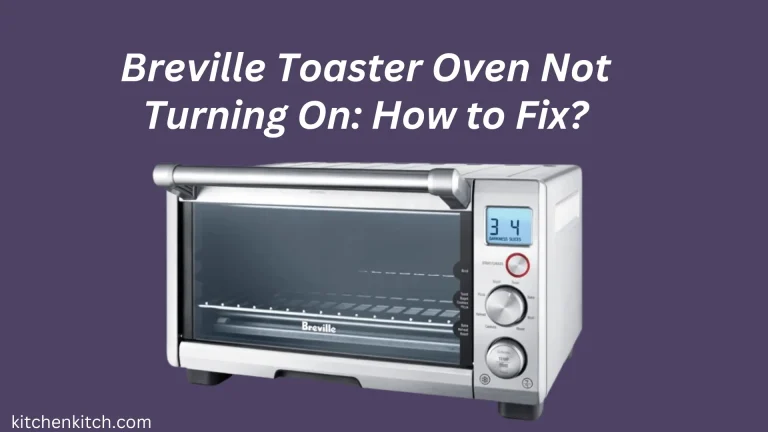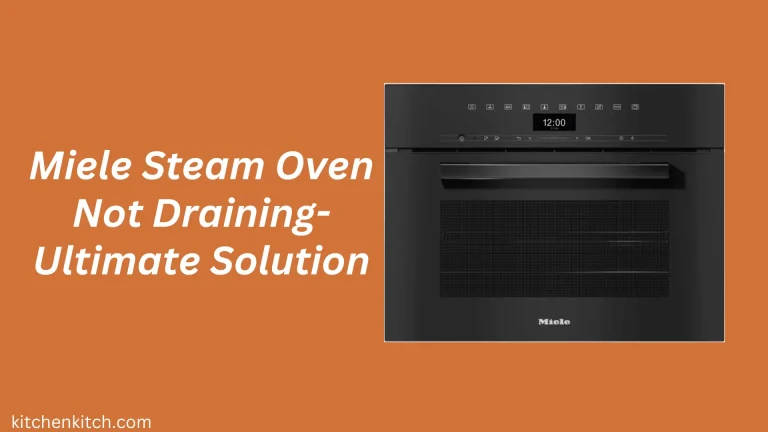Can You Turn Off the Self Cleaning Oven Early?
The oven is like the workhorse of the kitchen, used so often for baking yummy treats and cooking delicious meals. But let’s face it, cleaning it can be a real chore! Especially when those stubborn, baked-on bits just won’t budge from the oven door.
Enter the self-cleaning oven, a superhero in the world of kitchen appliances! This amazing oven can tidy itself up after you’re done with your cooking adventures. How? Well, it uses super high temperatures to zap away all those pesky food spills and burnt-on bits, leaving your oven sparkling clean without you having to lift a finger! So, you can spend less time scrubbing and more time enjoying your tasty creations.
Can You Turn Off The Self Cleaning Oven Early?
Yes, you can typically turn off a self-cleaning oven before the cleaning cycle is completed, but it’s important to do so cautiously and only if necessary. If you need to stop the self-cleaning process for any reason, such as an emergency, or if you realize it’s causing excessive smoke or odors, you can usually do so by pressing the cancel or stop button on the oven control panel.
However, it’s essential to be aware that interrupting the self-cleaning cycle may result in the oven not being fully cleaned or cooled down properly. Additionally, abruptly stopping the cleaning cycle could potentially damage the oven or its components. So, it’s advisable to only interrupt the self-cleaning process if necessary and to follow the manufacturer’s instructions carefully. If you encounter any issues or concerns, it’s best to consult the oven’s user manual or contact the manufacturer for guidance.
How Does the Self-Cleaning Oven Work?
A self-cleaning oven works by utilizing extremely high temperatures to burn off food residue and grease, leaving the oven interior clean. Here’s how the process typically works:
Preparation: Before starting the self-cleaning cycle, it’s essential to remove any loose debris or food particles from the oven interior. This helps prevent excessive smoke and odors during the cleaning process.
Locking Mechanism: Once the oven is prepared, the self-cleaning cycle begins. Many self-cleaning ovens have a locking mechanism that automatically engages during the cleaning cycle. This prevents the oven door from being opened while the interior is being heated to high temperatures, ensuring safety.
Heat Generation: The oven’s heating elements or gas burners are activated to raise the temperature inside the oven to around 800 to 900 degrees Fahrenheit (427 to 482 degrees Celsius). This intense heat effectively turns food residue and grease into ash.
Pyrolytic Cleaning: During the cleaning cycle, the organic material inside the oven undergoes a process called pyrolysis. Pyrolysis occurs when organic substances are heated to high temperatures in the absence of oxygen, causing them to break down into simpler compounds like carbon dioxide and water vapor.
Ash Removal: After the cleaning cycle is complete and the oven has cooled down sufficiently, the ash residue can be easily wiped away with a damp cloth or sponge. Some self-cleaning ovens may have a special ash removal feature or a separate ash collection tray for easy cleanup.
Cooling Down: It’s essential to allow the oven to cool down completely before attempting to open the door or clean the interior. This helps prevent burns and ensures safe handling of the oven.
Overall, the self-cleaning process in ovens is a convenient and efficient way to maintain a clean oven interior without the need for harsh chemicals or manual scrubbing. However, it’s important to follow the manufacturer’s instructions and safety guidelines when using the self-cleaning feature to prevent accidents or damage to the oven.
How to Turn Off a Self-Cleaning Oven Early?
Turning off a self-cleaning oven before the cleaning cycle is completed should be done with caution and following these steps:
- Monitor the Process: Keep an eye on the oven during the cleaning cycle. If you notice excessive smoke, strong odors, or any other signs of trouble, it might be necessary to stop the process early.
- Press the Cancel Button: Many self-cleaning ovens have a cancel or stop button on the control panel. Press this button to halt the cleaning cycle.
- Wait for Cooling: After canceling the cleaning cycle, give the oven some time to cool down. Self-cleaning ovens reach very high temperatures during the cleaning process, so it’s important to allow sufficient time for them to cool before opening the door.
- Open the Door Safely: Once the oven has cooled down, carefully open the oven door.
- Check for Residue: Take a look inside the oven to see if the cleaning process has effectively removed the grime and residue. If not, you may need to clean the oven manually using a safe oven cleaner and following the manufacturer’s instructions.
- Contact Support if Needed: If you encounter any issues or concerns while attempting to turn off the self-cleaning oven early, refer to the oven’s user manual for guidance or contact the manufacturer’s customer support for assistance.
Remember, safety is paramount when dealing with appliances, especially those as hot as self-cleaning ovens. Always prioritize caution and follow proper procedures to avoid accidents or damage to the oven. You should also know how to replace a kitchen sink without replacing the counterpart.
Benefits of Turning Off the Self-Cleaning Oven Early
If you turn off a self-cleaning oven early, there can be several benefits:
Reduced Energy Consumption: Self-cleaning cycles can be quite energy-intensive due to the high temperatures required to burn off food residue. Turning off the cycle early can save energy, leading to lower electricity bills and a reduced environmental footprint.
Prevention of Damage: Self-cleaning cycles generate intense heat to burn off food particles and grease. Turning off the cycle early can prevent potential damage to the oven caused by prolonged exposure to high temperatures, such as overheating components or warping oven racks.
Avoidance of Smoke and Odors: Self-cleaning cycles can sometimes produce smoke or strong odors, especially if there is excessive food buildup in the oven. Turning off the cycle early can help prevent these unpleasant side effects, keeping your kitchen smelling fresh and reducing the risk of smoke alarms being triggered.
Flexibility: Interrupting the self-cleaning cycle allows you to regain control over your oven’s cleaning process. You can stop the cycle early if you notice any issues or if you need to use the oven for cooking before the cleaning cycle is complete.
Less Wear and Tear: Self-cleaning cycles can put additional strain on oven components, such as heating elements and seals. By turning off the cycle early, you can potentially prolong the lifespan of these components and reduce the need for repairs or maintenance.
Overall, while it’s essential to follow safety guidelines and manufacturer recommendations when using a self-cleaning oven, there can be valid reasons for turning off the cleaning cycle early, leading to various benefits for both the oven and the user.
Drawbacks of Turning Off the Self-Cleaning Oven Early
While there can be benefits to turning off a self-cleaning oven early, there are also some potential disadvantages to consider:
- Incomplete Cleaning: Interrupting the self-cleaning cycle prematurely may result in an incomplete cleaning of the oven interior. This can leave behind stubborn food residue and grease, requiring manual cleaning with harsh chemicals or abrasives to remove effectively.
- Residual Heat: Self-cleaning ovens reach extremely high temperatures during the cleaning process. Turning off the cycle early may leave the oven interior still hot, posing a risk of burns or other injuries if not handled carefully when attempting to open the oven door or clean the interior.
- Potential Damage: Self-cleaning cycles are designed to operate within specific temperature and time parameters to safely remove food buildup. Interrupting the cycle early may disrupt this process and potentially damage oven components, such as heating elements, door seals, or electronic controls.
- Smoke and Odors: Abruptly stopping the self-cleaning cycle can result in the release of smoke or strong odors from the oven interior. This can create discomfort in the kitchen and may require additional ventilation to dissipate.
- Safety Concerns: Self-cleaning ovens are equipped with safety features to prevent accidents during the cleaning cycle, such as door locks to prevent accidental opening while the oven is hot. Turning off the cycle early may bypass these safety features, increasing the risk of burns or other injuries.
- Warranty Voidance: Some manufacturers may void the warranty or limit liability for damage if the oven is not used according to their guidelines, including interrupting self-cleaning cycles prematurely.
Conclusion
In conclusion, while turning off a self-cleaning oven early may have its benefits, such as saving energy and avoiding potential damage, it’s essential to weigh these against the risk of incomplete cleaning and safety concerns. Always follow the manufacturer’s guidelines and exercise caution when interrupting the cleaning cycle to ensure the best results and safety for you and your oven.

